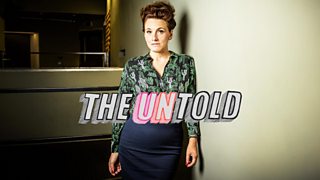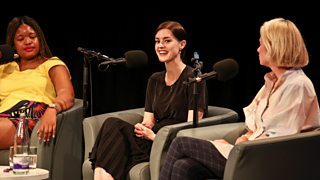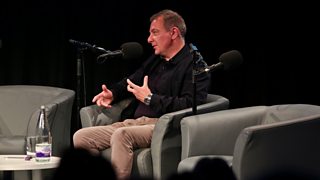Is this a golden age for digital storytelling?
Philip Sellars
Executive Editor, 主播大秀 Documentaries

Hands up who doesn’t love a good yarn, gossip, or anecdote?
We all enjoy peering into the lives of others, imagining ourselves in their shoes. We love empathising with people, real and fictional; we cry with them, laugh with them, and sometimes gawp in absolute horror at them. In other words, we all love a great story.
And now we are living in an age where there seems to be more stories being told than ever before. The endless carousels of documentaries and dramas on 主播大秀 iPlayer and Sounds make me wonder if there’s enough of my waking life left to consume them all.
As a documentary maker, I deal in real life stories. I run a strand on 主播大秀 Radio 4 called The Untold. It’s different from a lot of storytelling in that we are telling a story in real time – not after it’s happened. Like life itself, we don’t know how our stories will end when we start out.
To mark 100 editions of The Untold, its producers and other innovative storytellers recently got together for a fascinating discussion about modern storytelling, which airs this Saturday at 8pm on Radio 4. People like Jed Mercurio, who wrote Bodyguard and Line of Duty, and Laurie Nunn, who recently gave us the revealing series Sex Education, all share their thoughts.

(L-R) novelist Chibundu Onuzo, writer of Netflix's Sex Education Laurie Nunn and factual podcast maker Jennifer Forde
So is it true that we’re living through the golden age of digital storytelling? Here’s 5 reasons why I believe we are:
1. We’ve fallen back in love with long stories
In the past, it was hefty tomes like War & Peace that banished the long Victorian nights. These days, we’re prepared to binge-watch six series’ of Line of Duty.
One-off radio programmes are less common; just give me a podcast that runs and runs and my commute will fly by. It’s all thanks to smartphone apps that mean your radio and TV can follow you wherever you go.
2. We like intimacy in storytelling
Headphones are back. We listen and watch more on our own, and the storyteller is right in our head. This is storytelling that is whispered, chatted about, or confessed – not declaimed and “broadcast”. It’s the age of talking to one person, not an audience.
3. We like unreliable narrators and protagonists (even though we don’t trust them)

Bodyguard and Line of Duty writer, Jed Mercurio, talking at The Untold Storytelling Festival
David Budd, Jed Mercurio’s tortured veteran in Bodyguard, is a complicated character. We see the story through his eyes, but is he a good guy?
You could say that Hamlet was an unreliable narrator too, so what’s new? In the context of our world of fake news and fractured political narratives, we seem to lap up complication and equivocation. Basically, we don’t want good vs. evil anymore. We’ve become less “to be or not to be” and much more “to trust or not to trust”.
4. We like fiction that seems true
This is a time when factual and fictional storytelling seem to be coming together. Drama is being made as realistic as possible.
5. We like truth told as though it is fiction
Real life stories are being presented in a way that really grips us, because that’s what we want now. It’s why true crime is so popular. Podcasts like Serial and S-Town, and my own programme, The Untold, all use techniques from drama and novels to hook you in – and that’s what makes them so intriguing.
The Untold Storytelling Festival is broadcast on 主播大秀 Radio 4 and 主播大秀 Sounds this Saturday at 8pm.
